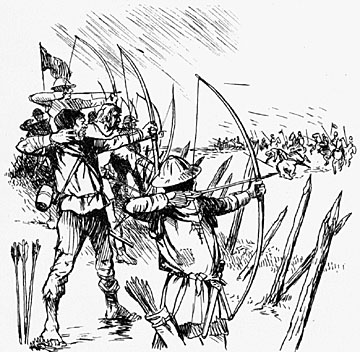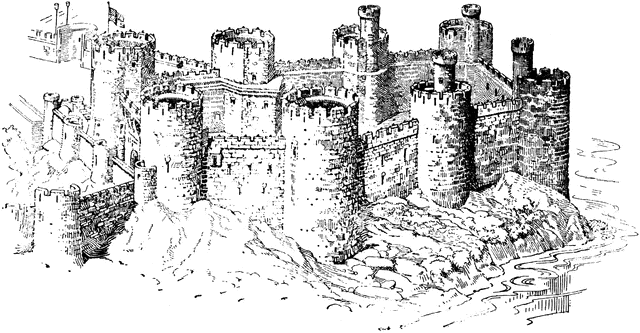Since army composition is the new Fad...
Personal Army of Helene of Dacaii
Dacaian Hoplites (Infantry)
Hoplites in Phalanx Formation
Pre-Conquest, the Hoplites were the principle form of warfare between the city states, as many families lacked control of a population large enough to create a substantial levy or standing army. Most battles were small scale skirmishes on a pre-determined battlefield, with no cavalry elements and archers generally being left at home to watch the walls when the garrison were away. These Hoplites paid for their own armour and so often were made of the nobility or the wealthier members of the middle class. They were generally well trained, had good discipline and were considered hardy frontline troops.
Since Helene's seizing of Dacaii, several reforms were made to the structure of the Hoplites. As the average Hoplite was a member of the Dacaian nobility, there were immediate issues with recruitment - most nobility had either fled, were in direct opposition to Helene or were a part of the petty nobility who had not yet accumulated the wealth or clout to become proper Hoplites. To bypass this issue, Helene had Hoplites be equipped by her own treasury rather than by themselves and allowed the peasantry to serve in the army as heavy infantry. While seen as an affront to Dacaian tradition, few were brave or foolish enough to protest. A noticeable shift in army composition happened, instead of made of the urban elite it was largely recruited from the rural peasantry - though there was a small reduction in reliability these new Hoplites were far more loyal and fearless than those of old. They were also far easier to corrupt with Helene's powers than the magic savvy nobility, and were quickly charmed into obedience. Officially, the Hoplites of Helene's army are called the "Archanaii Household Guard", though they do not technically act as the Guard of Helene.
Their main role in combat under Helene is to pin down the enemy force as spearmen, allowing the enemy to be flanked by the more terrifying of the Dacaian force - the gigantic spiders. They also act as a hard counter to enemy cavalry, easily putting a stop in a lancer's charge using their Phalanx formation which is imitated by fellow spearmen the world over.
Mercenary Archers (Ranged)
Hired Mercenaries in service of House Archanaii
As archery was considered a rarity in Dacaian society (hunters mainly used javelins, and hunting wild game for food was very uncommon), ranged warriors rarely came into use during warfare. When Dacaii was conquered, it was obvious that this was a problem that needed to be rectified should Helene ever need to fight against foreign armies, which at the time of her conquest was very likely. Mercenary archers were therefore hired in the place of a general archer levy, often hiring those from overseas that have little affiliation with those Helene seeks to fight. Though they have the same issues that usually accompany hired fighters, they are more or less made loyal by Helene's corruptive magic - turnaround is often high and very few desert. They are often kept separate from the Dacaian forces while marching and resting, and are often considered a separate army that happens to be commanded by the same leaders.
Recruits come from far and wide, often cannot initially speak Dacaian except for the common combat orders, and are from a wide range of races. It is not uncommon to see races that in other cases despise each other fighting side-by-side under Helene's banner. Another curious feature is that women are also accepted into the Archers, and can sometimes be seen as a way for independently-minded daughters to escape an arranged marriage or as a way of entering military service for noblewomen that are martially minded.
Widely feared, horrifying to the average footman who oppose them, the Giant Spiders make up the shock troops of Helene's forces. While the enemy is pinned by Hoplites, the spiders appear on the enemy flanks and crush any opposition in their path. Though some enemies consider a spider a kill to be proud of and boast about, on the field such dreams of glory quickly dissipate. They tower over most men, and make short work of those improperly equipped for fighting them.
Their fangs, large enough to pierce metal, are rarely used as their main weapon, instead choosing to kill with their legs by crushing a soldier with brute force. When the bite is used the venom does not instantly kill - it instead paralyses the foe for later consumption, often asphyxiating it's victim (though some remain conscious through the whole process). Another, more atrocious, method of fighting is to spit digestive enzymes, usually used to digest trapped pray, onto a foe. Though unable to burn through metal, it will liquefy leather, cloth or bare flesh. The victim will then usually be consumed in their liquefied state, so long as the spider survives the battle. Enemy cavalry are notoriously weak against them, as riders are taken from their mounts with ease and the horses themselves lack the mobility of their eight legged adversaries.
Not all that are paralyzed by spiders are eaten, however, a large portion of the survivors are wrapped in silk and taken as prisoners. This is another benefit of using the spiders - there is a possibility of taking many of the captured enemy as hostages, and so Helene can negotiate better terms of peace by holding the captured enemy to ransom.
However, despite the impact they have on morale, the spiders do have specific weaknesses. Firstly, heavily armoured troops enjoy protection from most of their attacks, allowing them to get close enough to make a killing blow - so long as they are not out maneuvered. Secondly, a long pike or spear is a natural counter to cavalry, and is no different to the spiders - polearms are able to strike the creatures without allowing them to come close enough to attack. Finally, fire is their greatest weakness. Wise commanders will order archers to light their arrows, or order mages to use pyromancy. Rarely, a mage can also attempt to take control of a spider for themselves, though through attempting to challenge Helene's powers the spider will often die in the attempt.
Titanic Spiders (Mage)
(for the sake of fairness, 5 "titans" will be represented as 50 normal mages ingame)
The Largest of Helene's Brood
Whilst the 2nd and 3rd generation of spiders make up the cavalry portion of the Dacaian army, the 1st have grown to such a size that they cannot be used as their smaller brethren are. Larger than elephants, they easily break through the front lines, crush mortal men in their footsteps and can take on most things they can encounter with ease. They fight in the same manner that the smaller spiders do, but are far more effective and rip through steel like paper. Their venom is also more powerful, in most doses it will liquefy the insides of it's victim (when watered down, it can be used as a hallucinogen, though is incredibly dangerous to non-magic users), which is later consumed by the Titanic Spider.
Though it has similar weaknesses to the smaller spiders, it would be impossible for a single soldier to fight them in the manner they would for a "mere" giant spider due to their size. It instead takes a co-ordinated effort by several to take one down, often by either using siege equipment or by attacking it's legs. Another tactic which proved to be briefly successful during the Night of Silk is to send riders with rope around its legs, eventually tying it up and forcing it to trip. On a final note, as they are usually the largest thing on the battlefield they will attract the attention of anything with a ranged weapon or magic, and so will take the bulk of any arrow volley.
Nonetheless, they are incredibly effective in battle and take significant effort to defeat. Only the most hardened of warriors working together can dispatch them, and only a very powerful mage could take them on in single combat.
(also, since some don't want to use magic in their armies, could Mages be renamed to "Special units" or something similar for simplicity's sake?)


























